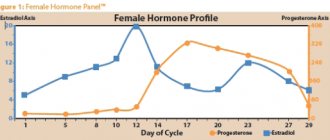Carbohydrates and their importance for the human body
One can only envy the popularity of carbohydrates. They are like superstars in the world of nutrition: they are discussed at every turn, everyone talks about them, everyone closely follows new data. Some argue that they are incredibly useful, while others argue that they are the worst enemies. Despite all this polarity of opinions, one thing is undeniable - everyone is interested in carbohydrates. Therefore, today we will analyze in detail carbohydrates and their importance for the human body.
If you miss all the metaphors, then from a biological point of view, carbohydrates are molecules consisting of carbon, hydrogen and oxygen atoms in certain proportions. But in the world of nutrition, everything is much more complicated than it might seem at first glance. Thus, carbohydrates have become one of the most controversial topics today.
Some believe that reducing the amount of carbohydrates in your diet is the path to optimal health, while others advocate diets higher in carbohydrates. In fairness, it is worth noting that both ultimately agree that moderation is always the better decision.
Regardless of what point of view you adhere to in this discussion, it is probably also difficult for you to deny the important role of carbohydrates in the human body. Let's look at their main functions.
- Carbohydrates give our body energy
One of the main functions of carbohydrates is to provide the body with energy.
Most of the carbohydrates we eat are digested and broken down into glucose before entering the bloodstream. Glucose is taken into the body's cells and used to produce a molecule called adenosine triphosphate ( ATP
), through a series of complex processes known as
cellular respiration
. Most cells in the body can produce ATP from several sources, including carbohydrates and fats. But even if you use a mixture of different substances in your diet, most of the cells in your body are stillStudy
: Carbohydrate, fat, and protein metabolism in muscle and in the whole body after mixed meal ingestion
- Carbohydrates store energy
If the body has enough glucose to meet current needs, the excess can be stored for the future. This stored form of glucose is called glycogen
and it is located primarily in the liver and muscles.
Liver
contains approximately 100 g. glycogen. These stored glucose molecules can be released into the blood to provide energy throughout the body and also help maintain optimal blood sugar levels between meals.
Unlike liver glycogen, muscle glycogen
can only be used by muscle cells. It is vital during long periods of high-intensity exercise. Muscle glycogen content can vary from person to person, but is approximately 500 grams.
Study
: The Role of Skeletal Muscle Glycogen Breakdown for Regulation of Insulin Sensitivity by Exercise
If you have all the glucose your body needs, plus all your glycogen stores are full, your body can convert excess carbohydrates into triglyceride molecules and store them as fat. Do you understand the connection? Carbohydrates do not lead to weight gain by themselves; a combination of factors leads to fat gain: prolonged excess consumption of food and reduced body expenses (when we move little, lead a sedentary lifestyle - in this case, our body no longer needs glucose in such a large volume ). The following situation occurs: we consume a large amount of carbohydrates, while moving little, which means that the body does not need such quantities. At the same time, our reserves in the liver and muscles are full and then the body has to send them for storage in the form of fat.
- Carbohydrates help maintain muscle
Glycogen storage is just one of several ways the body gets enough glucose for all its functions. If there is not enough glucose from carbohydrates, muscles can also be broken down into amino acids and converted into glucose or other compounds for energy.
Obviously, this is not the best option for us and our body, since muscle cells are of great importance to the entire body. Greater muscle loss is associated with poor health and a higher risk of death.
Study
: Age-related and disease-related muscle loss: the effect of diabetes, obesity, and other diseases
Therefore, eating the right amount of carbohydrates is one way to prevent muscle loss associated with periods of fasting. In this case, carbohydrates will reduce muscle breakdown and provide glucose for the brain.
Study
: The Effect of Carbohydrates on Ammonium and Ketoacid Excretion during Starvation
- Carbohydrates promote digestive health
Unlike sugars and starches, dietary fiber is not broken down into glucose—it passes through the body undigested. It is customary to divide them into two main types of fibers: soluble and insoluble.
Soluble fiber is found in:
- oats;
- legumes;
- the inside of the fruit;
- and some vegetables.
As it passes through the body, it draws in water and forms a gel-like substance - this helps to enlarge the stool and soften it.
- A review of four studies found that soluble fiber
improves stool consistency and increases the frequency of bowel movements in people with constipation.
Study
: Systematic review: the effects of fiber in the management of chronic idiopathic constipation
Insoluble fiber is also very good: it helps relieve constipation by adding bulk to stool and increasing the speed of passage through the digestive tract.
Insoluble fiber is found in:
- whole grains;
- peels and seeds of fruits and vegetables.
Getting enough insoluble fiber is an excellent prevention of digestive tract diseases.
- One observational study of 40,000 men found that higher intakes of insoluble fiber were associated with a 37% reduction in the risk of diverticular disease, a condition that causes multiple protrusions in the colon wall, sometimes causing inflammation in the area of the diverticula.
Study
: A prospective study of dietary fiber types and symptomatic diverticular disease in men
Of course, consuming excessive amounts of refined carbohydrates
negatively impacts heart health and may even increase the risk of diabetes.
At the same time, eating plenty of dietary fiber
can benefit the heart and have a positive effect on blood sugar levels.
As the viscous soluble fiber passes through the small intestine, it binds to bile acids and prevents their reabsorption. In order to make more bile acids, the liver uses cholesterol that would otherwise enter the blood.
- Research shows that daily consumption of 10.2 g. Soluble fiber (in the form of psyllium) can reduce levels of “bad” LDL cholesterol by 7%. Cholesterol-lowering effects of psyllium intake adjunctive to diet therapy in men and women with hypercholesterolemia: meta-analysis of 8 controlled trials
Fiber is different from other carbohydrates in that it does not raise blood sugar levels as much. Actually soluble fiber
Helps
delay the absorption of carbohydrates
in the digestive tract, which can lead to low blood sugar levels after meals.
Review of human studies investigating the post-prandial blood-glucose lowering ability of oat and barley food products
As we can see, carbohydrates do play an important role in several important processes. However, it is worth noting that our bodies have alternative ways to perform many of these tasks without carbohydrates.
- Almost every cell in our body can produce the fuel molecule ATP from fat. In fact, the largest form of stored energy in the body is not glycogen, but triglyceride molecules stored in fat tissue.
Most of the time, the brain uses glucose almost exclusively for fuel. However, during prolonged fasting or a very low-carb diet, the brain switches its primary fuel source from glucose to ketone bodies, also known as ketones.
Ketones
- These are molecules formed as a result of the breakdown of fatty acids. The body creates them when there is no carbohydrate, but energy is needed.
However
Even though ketones are the brain's main fuel source during fasting, the brain still needs about 1/3 of the energy coming from glucose through muscle breakdown and other sources in the body.
Study
: Fuel metabolism in starvation
Thus, despite the availability of alternative ways to obtain energy, carbohydrates in any case remain an indispensably important nutritional element in our daily diet.
Carbohydrates perform several key functions in our body.
:
- they provide us with energy to carry out everyday tasks;
- are the main source of fuel for high energy needs of the brain.
Of particular interest is fiber, a special type of carbohydrate that promotes good digestion and helps reduce the risk of heart disease and diabetes.
Functions of carbohydrates in the body
Carbohydrates perform important functions:
- Formation of energy reserves. Glycogen accumulates in tissue and liver cells.
- Improvement of digestive processes. Positive effect on digestion and nutrient absorption.
- Supporting cell regeneration. Construction of cell membranes, production of enzymes, nucleic acids and nucleotides.
- Strengthening protective functions. Improving the composition of mucus covering internal organs, making the body less susceptible to infections and mechanical damage.
- Preventing thrombosis through blood thinning.
- Providing energy resources. The oxidation of 1 g of carbohydrates is accompanied by the release of 4.1 kcal of energy and 0.4 g of water. This process is accompanied by the consumption of either glycogen or glucose.
A deficiency or excess of these organic substances leads to negative consequences for the body.
Without carbohydrates, the body cannot function properly.
Manifestations of shortage
If a person does not receive enough sugar, then glycogen levels gradually decrease, metabolism and brain function are disrupted, and fat accumulates in the liver, which leads to the development of dysfunction. As a result of a shortage of energy resources to maintain life, energy is obtained from adipose tissue, which is accompanied by the production of ketones. This process entails oxidation of the body and ketoacidotic coma.
Signs of excess
Excess sugar in the diet increases insulin levels and leads to fat formation.
Thus, food contributes to weight gain, diabetes, headaches, acne and other problems. Against the background of negative internal processes, a person’s well-being worsens, fatigue and weakness appear, and mental and physical activity decreases.
Imbalance of carbohydrate metabolism: symptoms, causes
An imbalance of carbohydrate metabolism occurs as a result of an excess or lack of carbohydrates in the human body. In turn, an imbalance of carbohydrates leads to metabolic disorders.
The most common types of violations are considered
:
- hyperglycemia
characterized by elevated blood glucose levels;
- hypoglycemia
, in which there is a deficiency of carbohydrates.
Hyperglycemia
develops in case of excess carbohydrates in the diet, and can develop into diabetes mellitus.
Hyperglycemia occurs in people with
:
- enlarged thyroid gland;
- renal or liver failure;
- for some other hormonal diseases.
Signs of excess carbohydrates are
:
- high blood glucose levels;
- obesity;
- diabetes.
For emotional hyperglycemia
Glucose increases when a person is stressed, angry or otherwise mentally agitated.
Nutritional hyperglycemia
appears with excess sugar consumption, and
hormonal
- due to improper functioning of the endocrine system.
The opposite situation also happens when there are not enough carbohydrates.
Causes of hypoglycemia
:
- low carbohydrate diets;
- starvation;
- digestive tract problems.
Symptoms of acute hypoglycemia
:
- general weakness;
- trembling of hands and feet;
- drowsiness;
- pallor of the skin and mucous membranes;
- acute feeling of hunger;
- cold sweat;
- heart sinking;
- cardiopalmus;
- nervousness, anxiety and fear.
Another type of deviation is disturbances in carbohydrate hydrolysis and absorption.
the
pancreas is under or overactive .
Metabolic disorders can cause
:
- lack of vitamin B;
- hypoxia;
- liver diseases.
We recommend
“Fats in nuts: Top 10 healthiest nuts and their effect on weight loss” Read more
In addition to this, there are, of course, hereditary diseases - congenital defects of the body due to distortions in the functioning of enzyme apparatus:
- glycogenosis
, in which glycogen intensively accumulates in organs and tissues;
Gierke's
disease , i.e. congenital deficiency of an enzyme in liver and kidney cells.
It is necessary to understand that most of the carbohydrate metabolism disorders are caused by increased
carbohydrate
consumption .
This means that such diseases can be prevented and prevented by changing lifestyle and nutrition. Here it is simply impossible to ignore such an unfortunately popular phenomenon as insulin resistance
.
Insulin
is a hormone secreted by the pancreas. Its main role is to regulate the amount of nutrients circulating in the bloodstream. Although insulin is primarily involved in managing blood sugar levels, it also affects fat and protein metabolism.
When you eat foods containing carbohydrates, the amount of sugar in your blood increases. Cells in the pancreas sense this increase and release insulin into the blood. Insulin then travels through the bloodstream, causing cells to take sugar from the blood. This process leads to a decrease in blood sugar levels.
resistance develops.
to insulin.
In this condition, the pancreas produces even more insulin in order to lower blood sugar levels. This results in high insulin levels called hyperinsulinemia
. Over time, cells can become increasingly resistant to insulin, causing both insulin and blood sugar levels to rise. Ultimately, the pancreas may become damaged, resulting in decreased insulin production.
Insulin resistance is one of the main causes of type 2 diabetes, affecting about 9% of people worldwide.
Study
: Diabetes
Causes of imbalance of carbohydrate metabolism - insulin resistance
:
- Numerous studies show that high levels of free fatty acids in the blood cause cells to stop responding properly to insulin. Dose-response effect of elevated plasma free fatty acid on insulin signaling
- Overeating, weight gain and obesity are closely linked to insulin resistance. Short-term overfeeding may induce peripheral insulin resistance without altering subcutaneous adipose tissue macrophages in humans
- Visceral fat, fat that accumulates around organs, can release a lot of free fatty acids into the blood, as well as inflammatory hormones that cause insulin resistance.
- High fructose intake (from added sugar, not fruit) has also been linked to insulin resistance. Fructose, insulin resistance, and metabolic dyslipidemia
- Increased oxidative stress and inflammation may also contribute to this abnormality. Molecular Events Linking Oxidative Stress and Inflammation to Insulin Resistance and β-Cell Dysfunction
- Lack of physical activity. Physical Activity and Insulin Sensitivity
- Disruption of the bacterial environment in the intestines, causing inflammation, aggravates insulin resistance and other metabolic abnormalities. The Role of Gut Microbiota on Insulin Resistance
Methods for correcting insulin resistance
:
- Physical activity
- The easiest way to improve insulin sensitivity. Exercise and insulin sensitivity: a review
- Reduce visceral fat through exercise and nutrition.
- To give up smoking. Smoking induces insulin resistance-a potential link with the insulin resistance syndrome
- Reducing sugar intake
. Try to reduce your intake of added sugars, especially from sugar-sweetened drinks.
- Balanced diet
. Whole, unprocessed foods, nuts and fatty fish.
- Omega-3 fatty acids
. These fats can reduce insulin resistance and also reduce triglyceride levels in the blood. The effect of n-3 fatty acids on glucose homeostasis and insulin sensitivity
*Additions. Berberine may increase insulin sensitivity and lower blood sugar levels. Magnesium supplements may also be helpful.
Study
: Application of berberine on treating type 2 diabetes mellitus , Magnesium intake and risk of type 2 diabetes in men and women
- Normalization of sleep
. Some evidence suggests that poor sleep causes insulin resistance, so improving sleep quality is important. A single night of partial sleep deprivation induces insulin resistance in multiple metabolic pathways in healthy subjects
- Reducing stress
. Try to control your stress level, use meditation. Acute psychological stress results in the rapid development of insulin resistance
- Low carb diets
may help combat metabolic syndrome and type 2 diabetes—and this is partially mediated by reducing insulin resistance. The effect of a low-carbohydrate, ketogenic diet versus a low-glycemic index diet on glycemic control in type 2 diabetes mellitus
However, when eating very low carbohydrates, such as on a ketogenic diet, the body can “induce” an insulin-resistant state in order to spare blood sugar for the brain.
Rules for consuming healthy carbohydrates for weight loss
Healthy carbohydrates are complex organic substances; they are the ones that need to be included in your diet when losing weight.
You need to know a number of rules, without which the desired result cannot be achieved:
- Simple carbohydrates should make up only 15% of the components consumed. The remaining 85% is starchy.
- It is necessary to eat vegetables and fruits rich in fiber.
- To lose weight, it is important to consume proteins together with carbohydrates, as they will help gain lean body mass.
- You should not eat a lot of food at one time. It is better to break your meals into several parts and eat in small portions.
- Confectionery products are best consumed in the morning, before lunch. In the evening, sucrose is poorly absorbed by the body, which causes unnecessary fat mass to appear.
When creating any diet, it is necessary to include a combined set of products. You can’t eat just one thing, like rice. When dieting, it is necessary to include vegetables and grains in the diet.
How to find out your carbohydrate allowance. The need for an individual approach to calculations
A person's optimal carbohydrate intake depends on their age, gender, body composition, activity level, personal preference, dietary culture, and current metabolic health. There is no one figure for everyone; a person’s daily need for carbohydrates, like everything in nutrition, requires an individual approach. A large number of factors must be taken into account to arrive at one value. And for each individual person this meaning may be different. Moreover, the need for carbohydrates can change at different periods of life and depend on the goals and activities of a person.
People who are physically active and have more muscle mass can, of course, afford much more carbohydrates than people who lead a sedentary lifestyle. This is especially true for those who do a lot of high-intensity exercise, such as weight lifting or sprinting. Their calorie consumption is many times higher and the body will use the carbohydrates supplied with food for its benefit. If a person with very little physical activity begins to consume an increased amount of carbohydrates, this can lead to weight gain.
Metabolic health is also a very important factor. If you have metabolic syndrome, obesity or type 2 diabetes, you need to be careful with carbohydrates. People who fall into these categories should watch the amount of carbohydrates in their diet
If we are still talking about some kind of general figure, then it is better to use it as a guideline, just to understand what to start from. The average norm helps you choose your individual norm.
According to the American Dietary
Guidelines
, carbohydrates should make up
45
to
65
percent of daily caloric intake.
For a person eating a standard 2,000 calories per day, this means that carbohydrates can account for 900
to
1,300
of those calories.
This is approximately from 225
to
325
gr.
in a day. However, it is important to remember that your daily carbohydrate needs will always vary depending on your individual needs and goals. Each person will have their own physiological need, as well as the upper level of consumption.
Tips for losing weight
When losing weight, you need to intelligently approach the distribution of nutrients. For those who want to lose extra pounds, there are several tips from nutritionists:
- Instead of exhausting and heavy diets, it is better to calculate the BJU.
- The daily intake of carbohydrates should not be lower than 140 grams.
- Consumption of fats is necessary for proper functioning of the immune system.
- The daily requirement for fat is 30 – 40 grams.
- Don’t forget about the water you need to drink per kilogram. For 1 kg of weight 20 milliliters of water.
- If you are overweight, you should give up sweets in favor of fruits.
If you work on yourself correctly, your weight will easily return to normal.
How many carbohydrates do you need per day: weight loss, weight gain
The norm of carbohydrates for weight loss
According to many studies, low-carb diets can be very effective for weight loss. Reducing your carbohydrate intake can lead to decreased appetite and weight loss, even without the need to count calories.
For some people, this is a very comfortable option because on a low-carb diet, they eat until they are full, feel satisfied, and lose weight at the same time.
However, the daily
amount of carbohydrates for weight loss
is also very individual and depends on age, gender, body type and activity level.
Some people choose to eat a low-carb diet and reduce their daily carbohydrate intake to 50-150
gr. in a day.
Let's look at some of the benefits of low-carb diets:
- Research shows that low-carb diets can reduce a person's appetite, causing them to eat fewer calories, which can help them lose weight. The Effects of a Low-Carbohydrate Diet on Appetite: A Randomized Controlled Trial
- Additionally, low-carb diets have benefits that go beyond just weight loss. They may help lower blood sugar, blood pressure, and triglycerides. And also help increase the level of HDL (good) cholesterol and improve the structure of LDL (bad) cholesterol. Health Effects of Low-Carbohydrate Diets: Where Should New Research Go?
- Low-carb diets often benefit from low-calorie, low-fat diets. They cause greater weight loss and improve health. Low-carbohydrate nutrition and metabolism
There are different carbohydrate standards for low-calorie diets, let's look at some of them:
100-150 gr. in a day
– This is a moderate consumption of carbohydrates. This may be appropriate for thin, active people trying to stay healthy and maintain their weight.
Carbohydrates that can be consumed at this rate
:
- all vegetables;
- a few pieces of fruit a day;
- moderate amounts of healthy starches such as potatoes, sweet potatoes and grains such as rice and oats.
We recommend
“Products to increase hemoglobin: diet and dietary features” Read more
50-100 gr. in a day
- this range is more severe and is not suitable for everyone.
Carbohydrates that can be consumed at this rate
:
- lots of vegetables;
- 2-3 pieces of fruit per day;
- minimal amount of starchy carbohydrates.
20-50 gr. in a day
– the most extreme version of the low-carb diet. Under no circumstances should you switch to this diet on your own, only under the supervision of a specialist and according to indications.
When consuming less than 50 g of carbohydrates per day
The body goes into
ketosis
, supplying energy to the brain through so-called ketone bodies.
Carbohydrates that can be consumed at this rate
:
- lots of low-carb vegetables;
- some berries, perhaps with whipped cream;
- need to watch out for carbohydrates from other foods such as avocados, nuts and seeds
It must be remembered that when switching to a low-carbohydrate diet, you need to be very careful; it is best to do this under the supervision of a specialist. This diet has its contraindications
and side
effects
that you may not be aware of and harm yourself.
One-size-fits-all advice: Simply eliminate the worst sources of carbohydrates from your diet, such as refined wheat and added sugar, so you'll be on the right track to better health and weight loss. Replace high-calorie refined foods
carbohydrate sources,
whole
healthy foods:
- vegetables;
- greenery;
- berries;
- fruits;
- cereals;
- fish;
- seafood;
- meat;
- eggs.
Choose carbohydrate sources that include fiber, try unrefined sources of starch: potatoes, sweet potatoes, oats, brown rice.
The norm of carbohydrates when gaining muscle mass
Carbohydrates are an important source of calories
for people wanting to build muscle mass.
- Some research suggests that eating carbohydrates along with protein within a few hours of exercise may help increase protein synthesis. Timing of postexercise protein intake is important for muscle hypertrophy with resistance training in elderly humans
- When you lift weights, the body relies heavily on carbohydrates for fuel, so a carbohydrate-rich pre-workout meal or snack can help you perform better in the gym. International society of sports nutrition position stand: nutrient timing
- Additionally, carbohydrates have a protein-sparing effect, which means the body prefers to use carbohydrates for energy instead of protein. As a result, he can use the protein for other purposes, such as building muscle, if his carbohydrate intake is sufficient. The Important Role of Carbohydrates in the Flavor, Function, and Formulation of Oral Nutritional Supplements
- Eating carbohydrates post-workout may slow down the protein breakdown that occurs after exercise, which may promote muscle growth. Intake of Protein Plus Carbohydrate during the First Two Hours after Exhaustive Cycling Improves Performance the following Day
Therefore, if your goal is to gain
muscle mass
, increasing your carbohydrate intake may be a good solution. The main thing is not to get carried away, remember the upper permissible level of consumption and train efficiently and regularly.
Which products are classified as complex (table)
The list of complex (slow) carbohydrates is not so long, but you need to love all these products, because they are priceless for the body and only bring benefits. It is worth noting that carbohydrates are divided into simple and complex, based on the glycemic index (GI) of products; the higher it is, the more “harmful” or higher in calories the product. Foods with the lowest glycemic index will not increase blood sugar levels, which means insulin will not be produced.
| Group | Products |
| Vegetables and greens | Pumpkin, carrots, celery, potatoes, squash, tomatoes, zucchini, cabbage, lettuce and spinach. |
| Fruits | Peaches, apples, pears, pomegranates, almost the entire range of unsweetened citrus fruits. |
| Cereals and legumes | Peas, beans, lentils, wheat, oats, rye, brown rice. Moreover, it is very useful to eat sprouted grains. |
| Porridge | Almost all types of well-known porridges: oatmeal, buckwheat, rice, millet, barley, pearl barley, except semolina. You can cook them with either water or milk. Durum wheat pasta. |
| Dairy | Milk, kefir, cottage cheese, cream, yogurt, but provided that the products are not fatty and do not contain flavorings or sweeteners. |
| Beverages | Dry wine, tomato juice, birch sap. |
From the list it is clear that you won’t have to infringe on yourself too much, because the products we are used to are very useful. Plus, you don’t have to give up sweets completely. This category also includes representatives with a low glycemic index: dark chocolate, marmalade, and fructose-filled ice cream.
The best carbohydrates for weight loss. The relationship between carbohydrates and weight loss
Carbohydrates are different from carbohydrates. Not all of them are equally beneficial and not all of them are truly harmful. You've probably heard that some carbohydrates are considered “good” and others “bad,” but the reality is much more complicated.
There are three main types of carbohydrates. Some carbohydrates occur naturally
— in whole fruits and vegetables, while others
are processed
and
refined
and are either poor or stripped of their nutrients.
We recommend
“Proteins in products for weight loss: features of protein diets and sample menu” Read more
Types of carbohydrates
:
- starches or complex carbohydrates;
- sugar or simple carbohydrates;
- cellulose.
Both simple and complex carbohydrates are broken down into glucose (aka blood sugar). Simple ones consist of one or two sugar molecules, while complex ones contain three or more sugar molecules.
Fiber is not digested or broken down, which is good for heart health and weight management.
Natural simple sugars
found in fruits and dairy products.
There are also processed and refined simple sugars
that food companies may add to products such as soda, candy, and desserts.
Good sources of complex carbohydrates:
- whole grains;
- legumes;
- beans;
- lentils;
- peas;
- potato.
Where can you find fiber?
:
- fruits;
- vegetables;
- whole grains;
- beans;
- legumes
Consuming fiber, complex and simple carbohydrates from natural sources such as fruits, can protect against many diseases and help maintain your weight. In addition, these carbohydrates contain large amounts of vitamins and minerals.
Processed and refined carbohydrates are high in calories and low in nutrients. They tend to lead to weight gain and may even contribute to the development of obesity-related diseases such as type 2 diabetes and heart disease.
Fast (simple) and complex (slow) carbohydrates
Doctors and nutritionists tend to divide carbohydrates into two broad categories:
- Simple or easily digestible.
- Complex or difficult to digest.
The first category usually includes glucose and fructose. They are found mainly in such products that are difficult to refuse due to their taste:
- sugar and honey;
- bakery products, pasta;
- sweet fruits and vegetables;
- raisins and dried fruits;
- fruit juices.
Some dishonest manufacturers mislead people and claim that if you replace glucose with fructose, you can easily lose weight. In fact, this is not the case, since both of these substances are easily digestible carbohydrates. This means that they are absorbed in the human body after 5-10 minutes, sugar quickly enters the blood and causes a chain reaction in the body.
When glucose enters the blood, the body begins to produce the hormone insulin to fight sugar, or rather, to fight construction processes in the body. If physical activity does not follow after taking a large amount of light carbohydrates, the body will convert them into fats. If glycogen reserves are depleted, the body will first begin to restore energy reserves, and only then will produce fat and store it in the subcutaneous tissues.
When the glucose runs out, insulin will stop being produced, and the person will again feel hungry. Thus, the body requires more insulin, which is a kind of drug. This chain is difficult to break, but if this is not done, then the extra pounds will begin to add in the near future.
Complex or difficult-to-digest carbohydrates have opposite effects on the human body. That is, their intake is accompanied by a long process of digestion, during which energy is slowly released. They contain a minimal amount of glucose and fructose, so the body will not ask for more every half hour, but on the contrary, the feeling of hunger will go away for several hours.
Complex carbohydrates are not completely digested, so they stimulate intestinal function, that is, its motility. As a result, a person can observe an improvement in the digestion process, improved well-being, no constant feeling of hunger, and weight loss.
Daily requirement for carbohydrates. Why it is necessary to adhere to the norm
There is no scientific work that explains exactly how to match carbohydrate intake to individual needs. As we have already discussed, the daily carbohydrate intake will be different for each person. Therefore, it is very important to experiment. Each person is unique, and what works for one may not work for another. It is important to conduct some experiments on yourself and find out what suits you and your body.
Before starting a low-carb diet, try tracking how many carbohydrates you eat in your typical day and whether they are healthy ones. Think about what can be added, and what is better to reduce or completely exclude?
focus
on quality
instead of focusing
on numbers . From counting and weighing, turn your attention to the sources of carbohydrates in your diet. Adding more quality whole foods and cutting out simple sugars and processed carbohydrates will go a long way toward improving your diet.
We recommend
“Vitamin B12 deficiency: symptoms and causes” Read more
An easy way to compensate for your carb intake
: Add some protein, healthy fats and vegetables to every meal. It will also be useful to include nuts, seeds, avocados in your diet, and, if possible, opt for unprocessed foods.
The body needs carbohydrates to function properly. Carbohydrates can account for approximately 900 to 1,300 calories of the daily value. Remember, this is just an average. Of course, this amount will vary depending on your height, weight and activity level. To identify more specific individual carbohydrate needs, it is recommended to consult a nutritionist.
Carbohydrates are our friends
and faithful comrades, it is important not to go overboard with them and monitor the quality of the sources - then they will only bring benefits and a good mood - without extra pounds and health problems.
What carbohydrates can you eat while losing weight?
When losing weight, it is necessary to exclude simple carbohydrates and consume complex ones. The latter are capable of dissolving into elemental sugar for up to several hours.
The breakdown of these organic substances occurs without increasing insulin in the blood, thanks to which a person does not feel hungry. The body spends a large amount of energy processing such products, burning extra pounds.
When losing weight, it is necessary to exclude simple carbohydrates and consume complex ones.
The diet must include food containing glycogen, starch, fiber, insulin and pectin. These substances are enzymes that can quickly break down glucose. Their responsibilities also include removing toxins from the stomach and intestines.
Products necessary for a diet containing “good” carbohydrates:
- whole grain bread or bran;
- pasta;
- cereal porridges;
- vegetables (carrots, beets, potatoes, onions);
- beans, soybeans, peas;
You can’t categorically refuse sweets. It is recommended to eat only real dark chocolate.
Fibrous carbohydrates
Fibrous carbohydrates must be eaten during a diet, as they are low in calories, but quickly fill a person. This type also burns fat well.
They are most often found in green vegetables:
- cucumbers;
- broccoli;
- asparagus;
- mushrooms;
- tomatoes;
- pasta;
- Red beans.
To quickly lose weight, girls use lean proteins and fibrous carbohydrates in their diet.
This combination gives quick weight loss, but if a person needs to gain muscle mass, then he should not eat food with these organic substances.
Sweet carbohydrates
This is the name given to simple carbohydrates that have a sweet taste.
Excessive consumption of products containing such an organic compound is harmful to human health. They are quickly broken down in the blood, producing insulin, which is then converted into fat cells.
When dieting, you should avoid foods containing glucose, fructose, and sucrose:
- confectionery;
- sweet carbonated drinks and juices;
- semolina and rice porridges.
Attention! After drinking a small can of Coca-Cola, a person consumes 9 tablespoons of sugar, a cup of latte – 7 tablespoons.
Starchy carbohydrates
Starchy carbohydrates
Starchy carbohydrates help you not feel hungry for a long time. With limited consumption of starchy foods, a person will not gain weight.
These include:
- oatmeal, barley;
- rice, buckwheat;
- legumes (peas, beans).
Advice from experienced trainers and nutritionists
After a decision is made to lose weight, all nutritionists recommend a preliminary consultation with a specialist. If you decide to get rid of kilograms on your own, you should listen to the advice of professionals:
- Don't go to extremes. It is not recommended to reduce the number of meals. In order to kickstart your metabolism, you need 5 small servings a day, and not limit yourself to a couple of salads. The body needs everything, the only question is how much.
- Breakfast is required. The optimal time is within an hour after waking up. If you don't eat breakfast, your body won't have enough energy, which causes lethargy and depression.
- The belief that you can’t eat after six in the evening is unfounded. Each person has his own regime. It is enough to eat your last meal 3 hours before bedtime.
- It is recommended to eat foods rich in carbohydrates separately from other foods. The process of their breakdown begins in the esophagus, and fats and proteins take longer. When proteins are broken down, energy is produced, and the body does not need to break down fats to produce energy. Thus, the fats go into storage known as body fat.
It is better to eat carbohydrates separately - Compliance with the norm of physical activity. It will not be possible to lose weight correctly on just one diet, since a change in the ratio of muscle and fat mass is desirable. Maximum attention to cardio exercises, for example, Nordic walking. You can notice excellent results if you go swimming, as this sport affects all muscle groups.
- Drink plenty of fluids. To determine muscle mass, special equipment is required. According to average data, women will spend 1500–2500 kcal, men 2000–4000. Based on the numbers, a woman needs 1.2–2.5 liters of water, a man 2–4 liters. Don't overdo it if you don't feel like drinking. In addition to water, you should drink teas and herbal infusions that improve the digestion process and the secretion of gastric juice.
- Avoiding sweets. All diets prohibit sweets, but your mood depends on it, so you can make an exception once a day in favor of two shares of bitter dark chocolate.
- Remember about balance. If you need to lose 2–3 kg, you can do without specialists. If you are overweight, it is better to see a nutritionist and take the necessary regular measurements so as not to harm your health.
When achieving the desired result, it is important to continue to follow theory and practice. There is a lot of scientific evidence in the world that by changing your lifestyle, which includes a balanced diet and exercise, you can slow down the aging process and even reverse time a little.
Daily carbohydrate calculator
To ensure that you do not make a mistake in the mass of substances you need and correctly calculate calories, you can use a special carbohydrate calculator. All you need to do is enter the necessary parameters:
- What's your gender;
- age;
- height;
- weight;
- level of physical activity (from none to very heavy);
The system will analyze the data you entered and show how many carbohydrates you need per day when losing weight, the amount of protein, and fat. It is very convenient to use such a service; it takes into account various factors that influence the required content of elements in food, helping to obtain the correct distribution option. If you follow the recommendations, you can lose weight without much effort.
Calculation of calorie content and ratio of BZHU
To maintain or lose weight, it is important to know how many calories you need to consume daily.
You can use the following simple algorithm:
- Multiply the mass of a person by 10.
- Human height multiplied by 6.25.
- Add the results of steps 1 and 2.
- Number of years multiplied by 4.9.
- Subtract the result of the calculations in step 4 from the number obtained in the calculation of step 3.
- For men, add the number 5 to the result of step 5, for women, subtract 160.
- The resulting number in step 6 is multiplied by the physical load coefficient:
- In the absence of physical activity, it is equal to 1.2.
- If a person walks a lot, sometimes goes to the pool or does exercises at home, then the coefficient is 1.4.
- If you exercise several times a week – 1.6.
- If a person trains daily and is highly active, then the result obtained in step 6 is multiplied by 1.7.
Protein products
Proteins serve a person to convert fats into energy.
Protein products
When losing weight, it is important to eat foods containing proteins (meat, fish). The components included in these products help to gain muscle mass and also cleanse the body of waste and toxins.
Benefits of eating protein:
- improvement of heart function;
- decreased feeling of hunger;
- removal of excess fluid, which can be deposited in the form of fat reserves;
- improvement of metabolism.
Allowed foods include: chicken, seafood and low-fat dairy products. Among vegetables and fruits, eggplants, avocados, and apples are rich in proteins. A protein diet helps you quickly get rid of extra pounds, but other organic components cannot be completely eliminated.
Fats: get rid of them or leave them
It is not recommended to completely give up fat during a diet, as the person will have difficulty thinking and feel tired.
When dieting, it is recommended to consume foods containing omega-3 fatty acids: salmon, tuna, cabbage, walnuts, parsley.
They perform the following functions:
- improve human memory;
- reduce the likelihood of developing cancer;
- fight fatigue;
- reduce the load on the heart and joints;
- increase skin protection, reducing the load on the skeleton.










